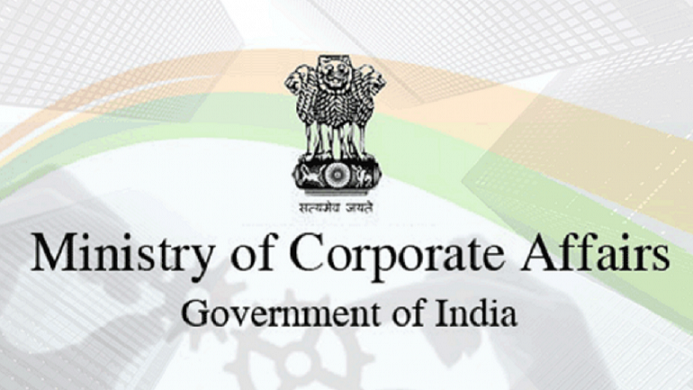By Our Correspondent
NEW DELHI/BHUBANESWAR: With the object of unleashing the entrepreneurial spirits of our youth and to remove the fear of criminal prosecutions for non- substantive minor and procedural omissions and commissions in the normal course of their business transactions, the Government of India in the Ministry of Corporate Affairs (MCA) decided to initiate the process of decriminalization of compoundable offences under the limited liability partnership (LLP) Act, 2008, for greater ease of doing business for law abiding LLPs.
The Government treats Honest and Ethical Corporate entrepreneurs as wealth creators and nation builders. The objective of the De-criminalization exercise is to remove criminality of offences from business laws where no malafide intentions are involved. In furtherance of the said objective, an exercise was undertaken to identify those provisions of the Limited Liability Partnership Act, violations of which do not result in injury to public interest but are presently criminal in nature with fine as well as punishment after conviction being provided for in the Act.
Principles adopted for Decriminalization of Compoundable Offences:Principle 1: Offences that relate to minor/ less serious compliance issues, involving predominantly objective determinations, are proposed to be shifted to the In-house Adjudication Mechanism (IAM) framework instead of being treated as criminal offences.Principle 2: Offences that are more appropriate to be dealt with under other laws, are proposed to be omitted from the LLP Act, 2008.Principle 3: For non-Compoundable offences that are very serious violations entailing an element of fraud, intent to deceive and caused injury to public interest or non- compliance of order of statutory authorities impinging on effective regulation, Status Quo would be maintained.
In all, twelve (12) offences are proposed to be decriminalized and one (1) provision (Section 73) entailing criminal liability is proposed to be omitted. The 12 de-criminalized offences would then get shifted to IAM thereby de-clogging the criminal courts from routine cases.In addition to the De-criminalization of the Act the Government also proposes Introduction of certain new concepts into the Act for greater Ease of Doing Business:
Small LLP: It is proposed to create a class of LLP called as “Small LLP” in line with the concept of Small Companies. Such Small LLPs would be subject to lesser compliances, lesser fee or additional fee and lesser penalties in the event of default. Thus, lower cost of compliance would incentivize unincorporated micro and small partnerships to convert into the organized structure of an LLP and derive its benefits.
Non-convertible Debentures (NCDs): It is proposed to allow LLPs to raise capital through issue of fully secured Non-Convertible Debentures (NCDs) (as an alternative to equity participation) from investors who are regulated by SEBI or RBI. This will help deepen the Debt Market and enhance the capitalization of LLPs.
Reduction of Additional Fee: It is also proposed to amend Section 69 of the Act with a view to reduce the additional fee of Rs. 100 per day which is presently applicable for the delayed filing of forms, documents. A reduced additional fee is expected to incentivize smooth filing of records and returns of LLPs and consequently result in an updated registry for proper regulation and policy making.
In line with the vision of the Government of India, the definition under the Companies Act, 2013 for Small Companies has now been revised by increasing their thresholds for Paid up capital from “not exceeding Rs 50 lakh” to “not exceeding Rs 2 crore” & Turnover from “not exceeding Rs 2 crore” to “not exceeding Rs 20 crore” (Click Here for Notification). This is expected to benefit more than two lakh companies in terms of lesser compliances, lesser filing fees and lesser penalties (in the event of any defaults).
Small companies are the backbone of our corporate world. They represent the Entrepreneurial aspirations & Innovation capabilities of lakhs of citizens. They contribute to employment and GDP in a very substantial manner. The Government has always been committed to taking measures which create a more conducive business environment for such law abiding companies, including reduction of compliance burden on such companies.
Some of the benefits of reduction in compliance burden for over 2 lakh companies as a direct consequence of the revised definition are as under:No need to prepare Cash flow statement as part of financial statement.Where other companies require providing details of remuneration to directors and key managerial personnel, small companies are required to provide details of the only aggregate amount of remuneration drawn by directors in its Annual Return.Mandatory rotation of auditor not required.An Auditor of small companies is not required to report on the adequacy of the internal financial controls and its operating effectiveness in the auditor’s report.
Hold only two board meetings in a year.Annual Return of the company can be signed by the Company Secretary, or where there is no company secretary, by a single director of the company.Lesser penalties for Small Companies.Lesser filing fees for Small Companies.
As a measure which directly benefits Startups & Innovators in the country, especially those who are supplying products & services on e-commerce platforms, and in order to bring in more unincorporated businesses into the organized corporate sector, the incorporation of One Person Companies (OPCs) is being incentivized by amending the Companies (Incorporation) Rules to allow OPCs to grow without any restrictions on paid up capital and turnover, allowing their conversion into any other type of company at any time, reducing the residency limit for an Indian citizen to set up an OPC from 182 days to 120 days and also allow Non-Resident Indians (NRIs) to incorporate OPCs in India.
In addition, the fast track process for mergers under the Companies Act, 2013 has also been now extended to also include mergers of Startups with other Startups and with Small companies, so that the process of mergers & amalgamations is completed faster for such companies.
The amendments to the Rules governing OPCs will cover the following, w.e.f 01st April 2021
Previously NRIs were not allowed to incorporate OPCs. Now any natural person, who is an Indian citizen, whether resident in India or otherwise would be allowed to form an OPC.
For being considered as a resident in India, the residency period has been proposed to be reduced to 120 days from 182 days for NRIs.
Rule relating to voluntary conversion unless OPC has completed two years from the date of incorporated is proposed to be omitted and with effect from 01.04.2021, Conversion of One Person Company into a Public company or a Private company shall be permitted anytime.
A One Person company may be converted into a Private or Public Company other than a company registered under section 8 of the Act, after increasing the minimum number of members and directors to two or minimum of seven members and three directors as the case may be,
Similarly the limitation of Paid up capital & turnover presently applicable for OPCs (paid up share capital of fifty lakhs rupees and average annual turnover during the relevant period of two crore rupees) is being done away with so that there are no restrictions on the growth of OPCs in terms of their paid up capital & turnover.
Rationalization of e-forms applicable for OPCs by omitting e-Form No.INC-5 and modification of e-form INC-6 (application for conversion from OPC to a Private company or a Public company and also Private company to OPC or )Amendment notification issued on 01.02.2021.






















